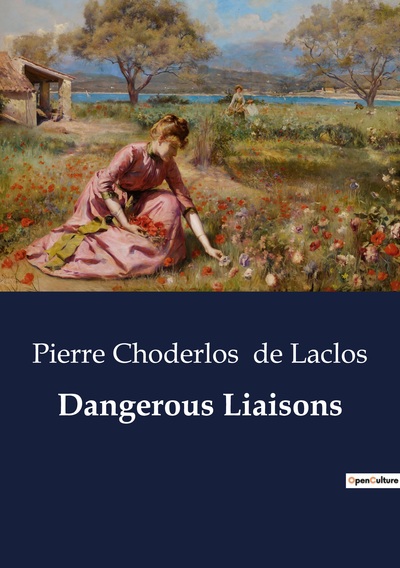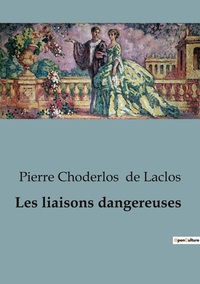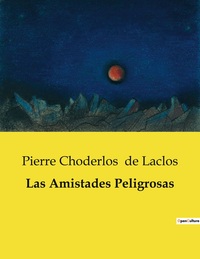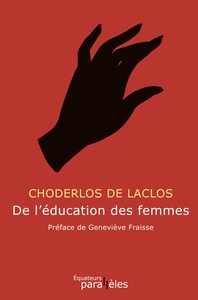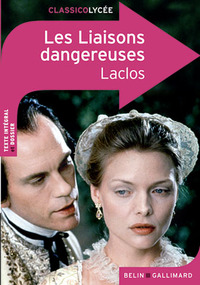Nous utilisons des cookies pour améliorer votre expérience. Pour nous conformer à la nouvelle directive sur la vie privée, nous devons demander votre consentement à l’utilisation de ces cookies. En savoir plus.
Dangerous Liaisons
EAN : 9791041800940
Édition papier
EAN : 9791041800940
Paru le : 26 avr. 2023
24,90 €
23,60 €
Disponible
Pour connaître votre prix et commander, identifiez-vous
Notre engagement qualité
-
 Livraison gratuite
Livraison gratuite
en France sans minimum
de commande -
 Manquants maintenus
Manquants maintenus
en commande
automatiquement -
 Un interlocuteur
Un interlocuteur
unique pour toutes
vos commandes -
 Toutes les licences
Toutes les licences
numériques du marché
au tarif éditeur -
 Assistance téléphonique
Assistance téléphonique
personalisée sur le
numérique -
 Service client
Service client
Du Lundi au vendredi
de 9h à 18h
- EAN13 : 9791041800940
- Réf. éditeur : 293282
- Date Parution : 26 avr. 2023
- Disponibilite : Disponible
- Barème de remise : NS
- Nombre de pages : 546
- Format : H:210 mm L:148 mm E:29 mm
- Poids : 698gr
- Résumé : Dangerous Liaisons (Les Liaisons dangereuses) is an early French novel by Pierre Choderlos de Laclos, first published in four volumes in 1782. At the time of its publication novels were a new literary form, and Laclos chose to present his story in an epistolary style, composing the novel solely of a series of letters written by the major characters to each other. It was first translated into English in 1812 and has since become universally regarded as one the most significant early French novels. The story is framed around the Marquise de Merteuil and the Vicomte de Valmont, two narcissistic French aristocrats and rivals who enjoy games of seduction and manipulation, and who most especially enjoy one-upping each other. The letters they send to each other portray an interconnected web of seduction, revenge, and malice, and are interspersed with the more innocent letters of their victims. Dangerous Liaisons has often been seen as a depiction of the corruption and depravity of the French nobility shortly before the French Revolution, thereby making a negative statement about the Ancien Régime. But it's also a depiction of the timeless problems surrounding sex and love, and a realistic portrayal of desires that are often beyond our control. As Laclos enjoyed the patronage of Louis Philippe II, the Duke of Orléans, and as other royalist and conservative figures like Queen Marie Antoinette enjoyed the book, it's likely it wasn't seen as a morality tale until after the French Revolution.

